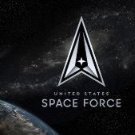Members Can Post Anonymously On This Site
DAF stands up Integrated Capabilities Office to advance Operational Imperatives
-
Similar Topics
-
By Space Force
Within the exercise environment, the CJSpOC facilitated the operational command and control of combined space forces in the Korean theater to achieve the combined forces commander's objectives.
View the full article
-
By Space Force
DAF guidance on Return to In-Person Work for the purpose of creating a more capable and lethal force.
View the full article
-
By Space Force
The Department of the Air Force provided guidance March 19 for military members and civilian employees who are presently on TDY, traveling on PCS orders, or scheduled to begin such travel for A1-sponsored training.
View the full article
-
By Space Force
The DAF announced its validation plan in response to the Restoring America’s Fighting Force Task Force established in January 2025.
View the full article
-
By NASA
1 min read
Preparations for Next Moonwalk Simulations Underway (and Underwater)
NASA astronaut and Expedition 65 Flight Engineer Mark Vande Hei sets up the International Space Station’s exercise bicycle, also known as the Cycle Ergometer with Vibration Isolation and Stabilization (CEVIS), inside the U.S. Destiny laboratory module. Vande Hei later strapped himself on the CEVIS and attached sensors to himself for a workout study measuring aerobic capacity in space.NASA Exposure to the microgravity environment causes muscle size, strength, and endurance to decline. Based on ISS data, if crew adhere to the exercise schedule and have access to adequate exercise countermeasure systems then on average, they return with minimal losses of muscle size, strength, and endurance. New exploration countermeasures systems will be different from ISS and may not have the capability to support exercise as required to maintain human performance.
On Challenger’s middeck, Mission Specialist Guion “Guy” Bluford, assists Dr. William E. Thornton (out of frame) with a medical test that requires use of the treadmill exercising device designed for spaceflight by the STS-8 medical doctor on Sept. 5, 1983. Forward lockers with data recording units and checklist notebooks are to the left of Bluford. Guy Bluford was the first African-American astronaut to fly into space. Directed Acyclic Graph Files
+ DAG File Information (HSRB Home Page)
+ Muscle Risk DAG and Narrative (PDF)
+ Muscle Risk DAG Code (TXT)
Human Research Roadmap
+ Risk of Impaired Performance Due to Reduced Muscle Size, Strength & Endurance
+ 2015 March Evidence Report (PDF)
Human System Risks Share
Details
Last Updated Mar 11, 2025 EditorRobert E. LewisLocationJohnson Space Center Related Terms
Human Health and Performance Human System Risks Explore More
1 min read Risk of Ineffective or Toxic Medications During Long-Duration Exploration Spaceflight
Article 23 mins ago 1 min read Risk of Mission Impacting Injury and Compromised Performance and Long-Term Health Effects due to EVA Operations (EVA Risk)
Article 23 mins ago 1 min read Risk of In-Mission Injury and Performance Decrements and Long-term Health Effects due to Dynamic Loads (Dynamic Loads Risk)
Article 23 mins ago Keep Exploring Discover More Topics From NASA
Humans In Space
Missions
International Space Station
Solar System
View the full article
-
-
Check out these Videos



Recommended Posts
Join the conversation
You can post now and register later. If you have an account, sign in now to post with your account.
Note: Your post will require moderator approval before it will be visible.